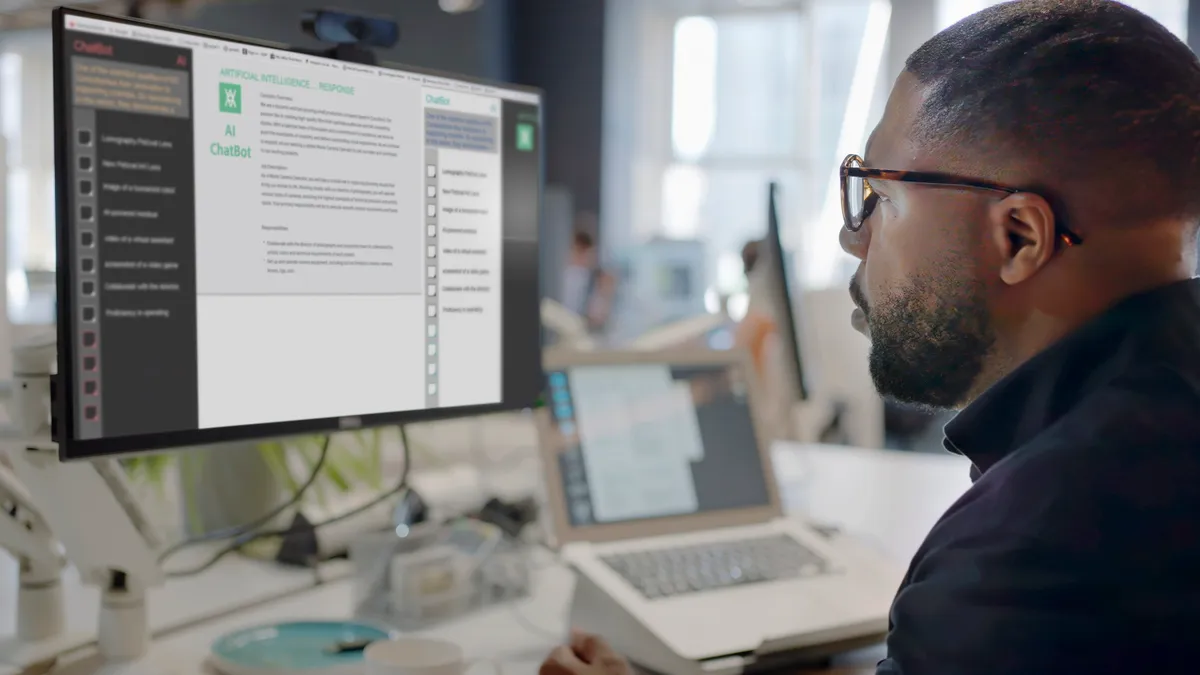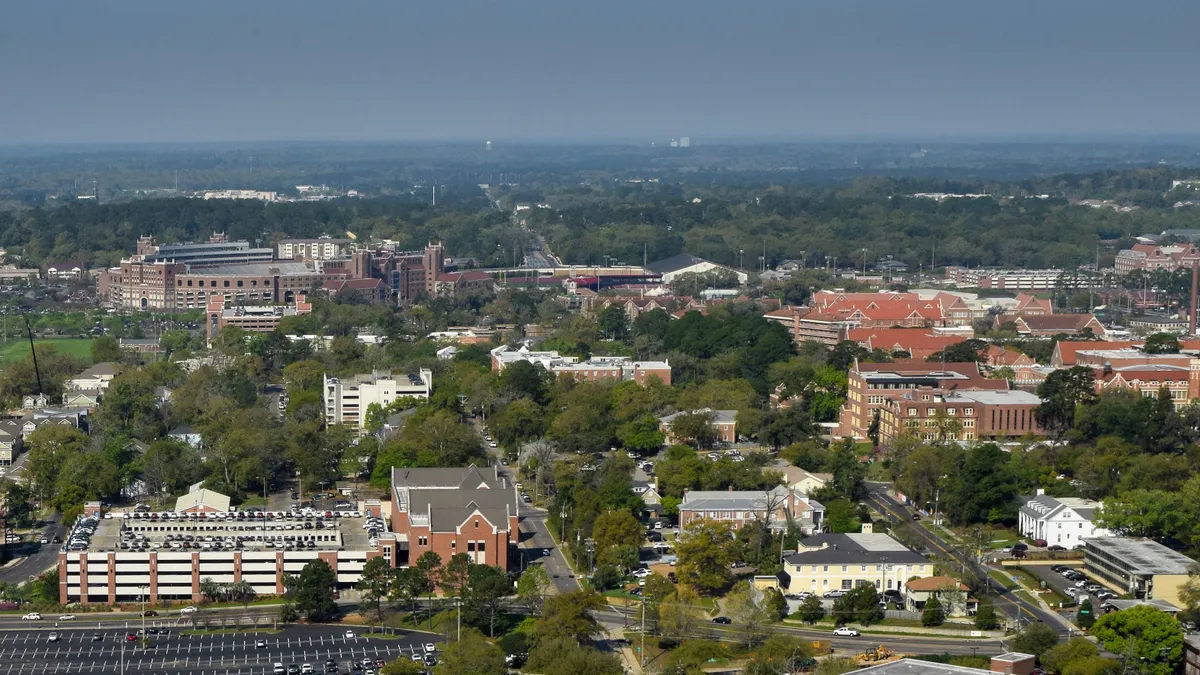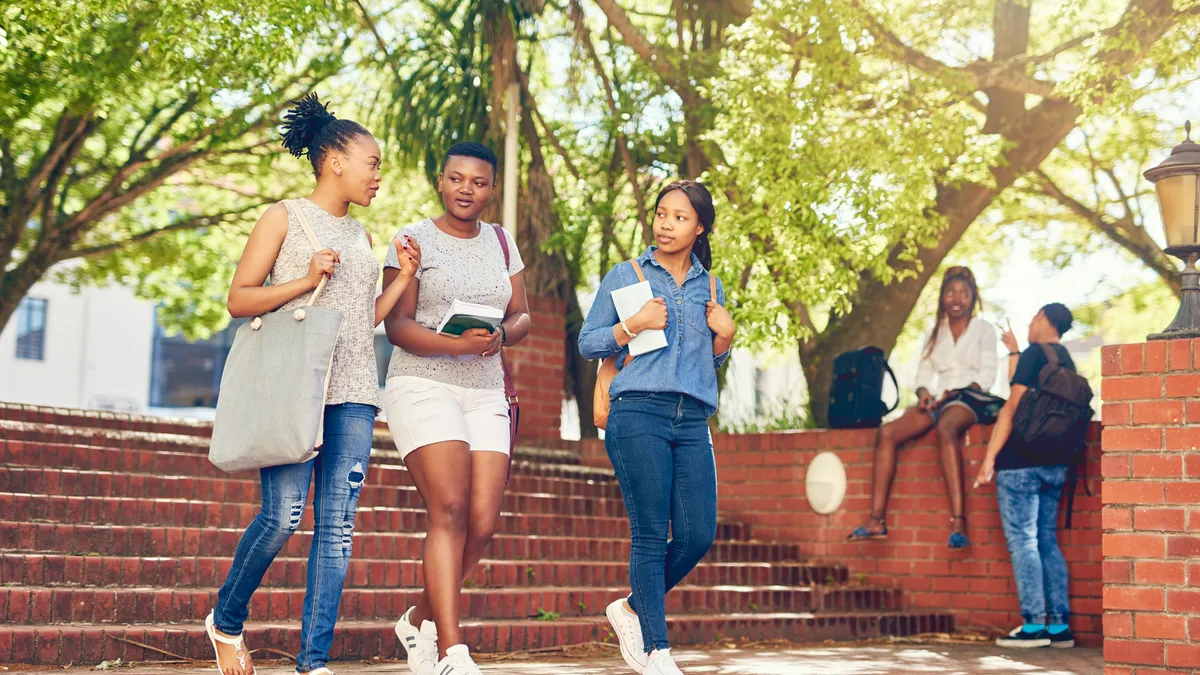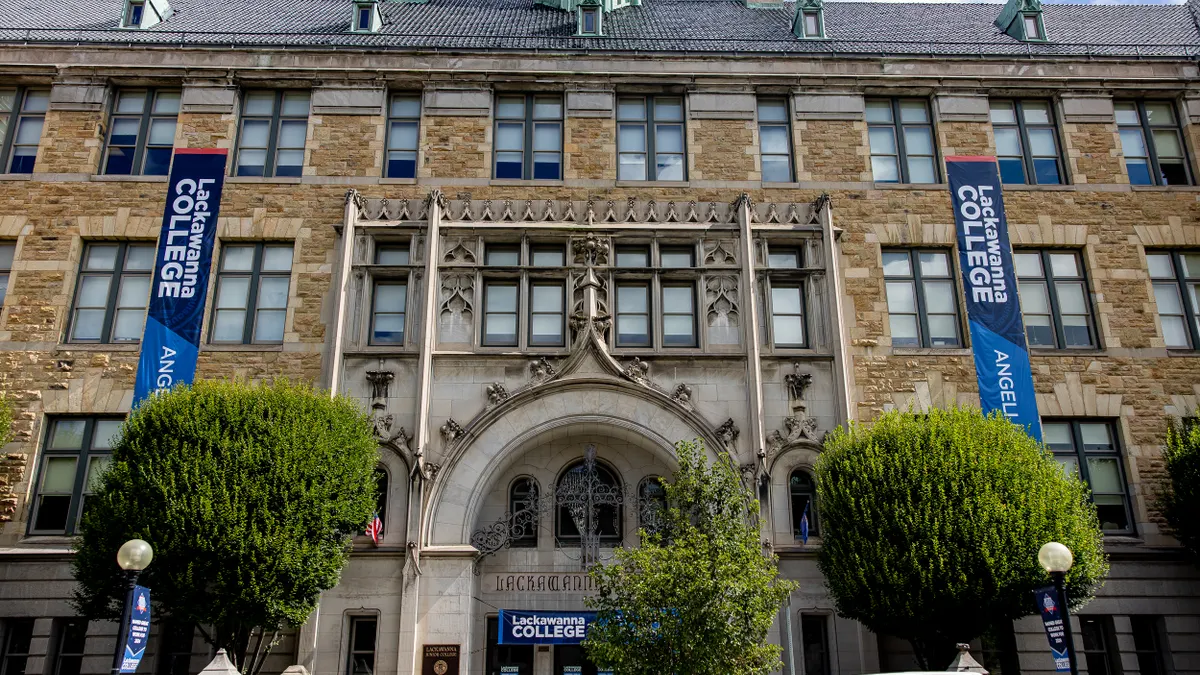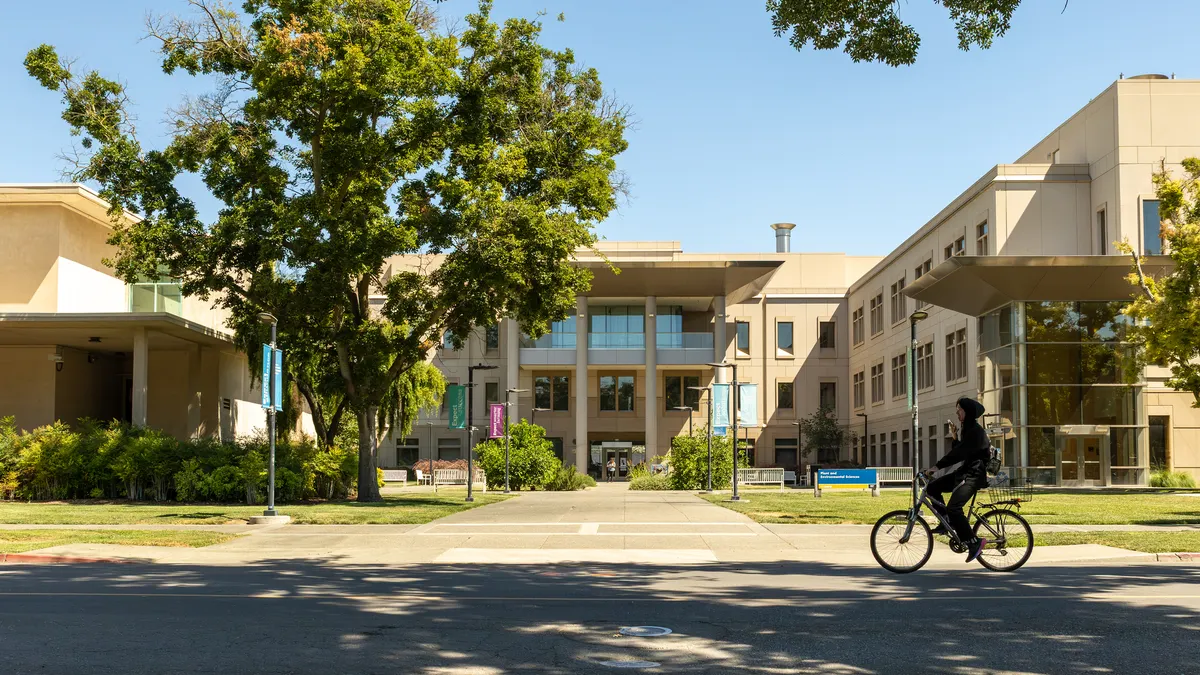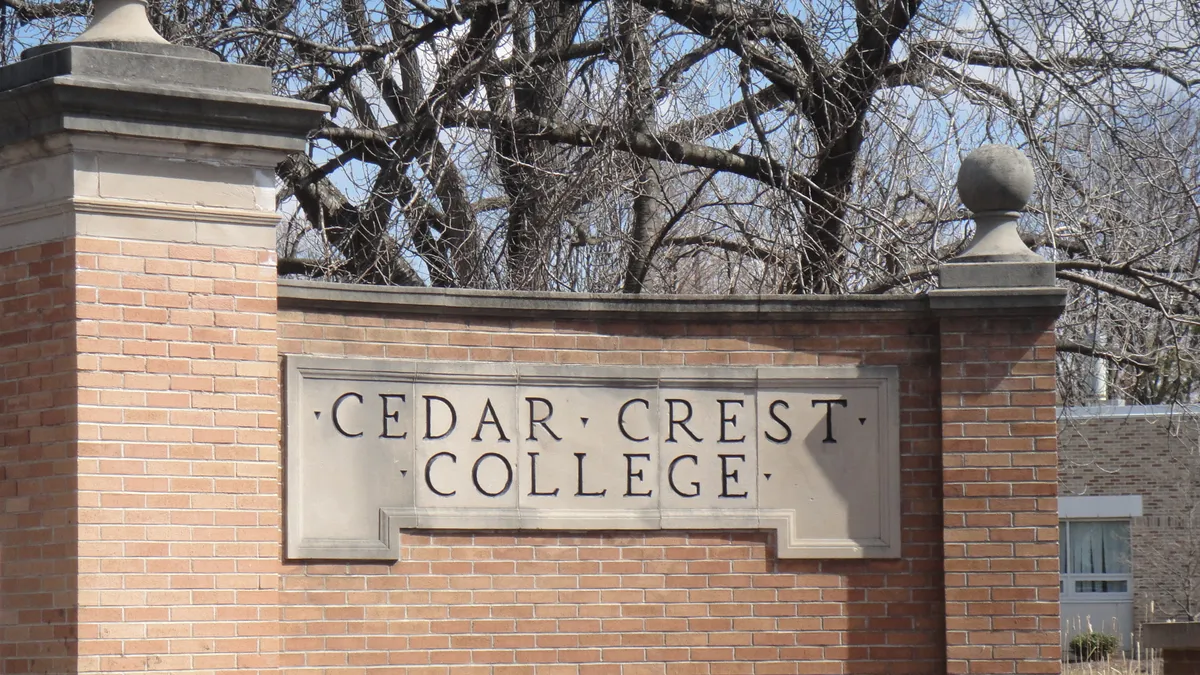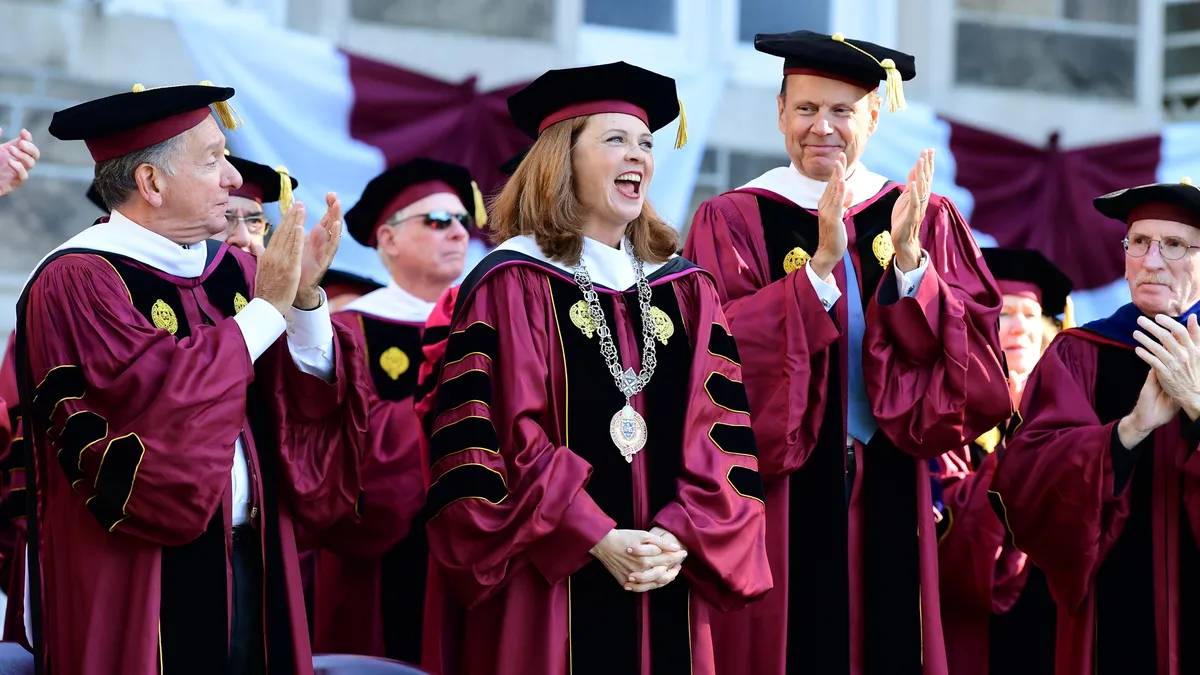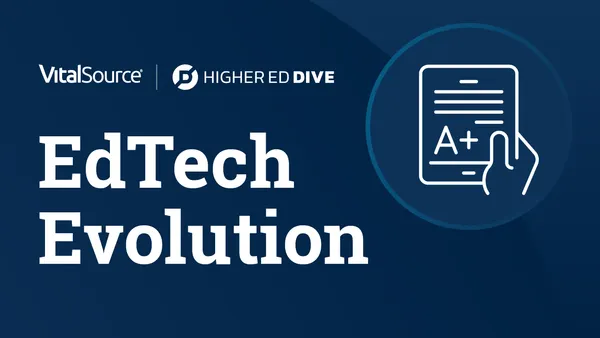Nido Qubein is the president of High Point University, a private nonprofit institution in North Carolina.
When the AI-powered ChatGPT made its big debut, higher education leaders naturally questioned how their students would use high-tech tools like it to write essays and research papers for class.
Just a short time later, we know that’s only a microscopic way that AI is impacting higher education. There’s a bigger question that universities should answer: How can we help students succeed and lead in a complex, AI-powered world after graduation?
I believe the answer is life skills — the kind that outlast and extend beyond inevitable technological changes. We should stop fearing AI and instead teach students to be resilient, self-reliant, compassionate and capable of sound judgment.
We won’t shortchange students on technical skills, but this won’t be enough in the face of AI. AI will eliminate more traditional technical jobs and drive major disruption — some positive, some much less so — in the way we live and work.
Universities must ensure they’re teaching the following skills to students.
Judgment and problem solving
A fast-moving technology with a reputation for making significant errors requires oversight by people with strong critical thinking skills.
I recently had the pleasure of interviewing famed theoretical physicist Michio Kaku. I asked him if it is possible for us to someday have artificial wisdom since we already have artificial intelligence. His answer was telling.
“Intelligence is more than just being smart. It’s being able to put the data together and come up with some conclusions,” Kaku said, “and then from the conclusions calculate the consequence of these conclusions. That gets us into wisdom, and artificial intelligence does not go that far. It simply allows you to compute.”
Experience is the best way to help students hone their judgment and problem-solving abilities.
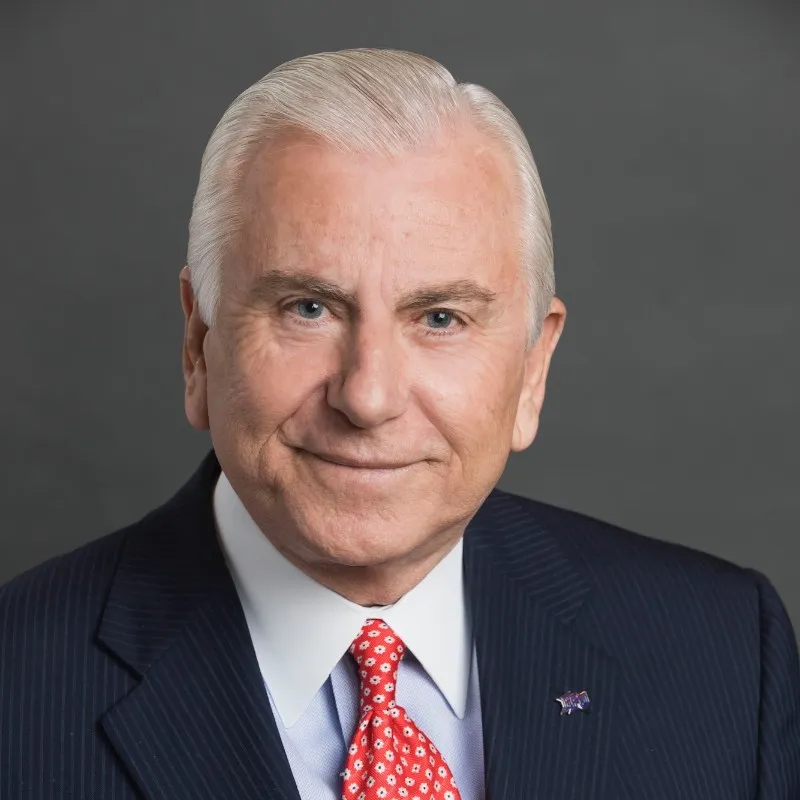
We need to deliver more experiences sooner for every major and every type of student pursuing a degree. When a student has opportunities to solve a real-world problem, implement a solution to a community issue or create something that betters the lives of others, they flex and build these abilities.
Campuses usually have laboratories and real-world studios where students conduct research, produce creative works, master new technologies, invent new ways of doing things and encounter scenarios that will occur time and time again in the workforce.
We need to give all students access to these resources as well as the freedom they need to be intellectually curious. AI lacks the human element we look for in leaders. Our priority is to develop the entire student, making them well-rounded, global citizens.
Empathy and emotional intelligence
A society going through the type of disruption that AI will bring requires strong leaders who have the ability to put themselves in other people’s shoes and lend a hand to those in need.
In 2022, our university’s Survey Research Center questioned 500 executives at organizations with 2,500 employees or more to examine what leaders are looking for when they hire candidates, as well as what qualities employees need to get promoted and continue to grow in their careers.
The survey confirmed what I have always believed: People skills are in high demand and harder to develop than technical skills. If you consider what Kaku said, that’s even more true in an AI-driven world. AI can guide the technical aspects of something, but only humans can frame it with empathy and emotional wisdom.
A majority of executive leaders, 64%, said they would be more hesitant to hire a new college graduate who lacked emotional intelligence than a person who lacked technical skills. That isn’t surprising when you consider that an even larger majority of executives said it is much easier to develop an employee’s technical skills than their personal initiative and coachability.
Another way to look at the importance of having life skills, such as emotional intelligence, is to consider how you feel in your doctor’s office.
Even though doctors are highly trained, they know that bedside manners are still an important tool. When you visit a doctor, their ability to listen and communicate with you matters as much as their technical skills, if not more. You might not return to a doctor who ignores your concerns and fails to answer your questions when you seek clarity about a medical issue.
We are failing our students if we teach them that life skills are no longer valued in the AI age.
Resilience and openness to change
We need to equip students with confidence to trust their own ability to embrace positive change and adapt to negative implications. Technology isn’t going to stand still, and neither can our students.
Disruptive innovation expert Daniel Burrus recently gave a presentation to our faculty about the future. He gave the example of two physicians — one who uses a medical AI platform to help serve patients and another who does not. He noted that most of us would have a lot more confidence in a doctor who is willing to learn and adopt new healthcare tools and technologies in pursuit of better care, as opposed to one stuck in their ways and scoffing about change.
New technologies might mean new routines, new economic realities, the rise of new opportunities and the sunset of others. College graduates need the ability to embrace the positive and ride out the difficulties that come with disruption.
We’ve entered difficult times, and our institutions must be able to strategically adapt in a way that benefits our students for the rest of their lives. Prioritizing their critical life skills is actually our most important mission.

